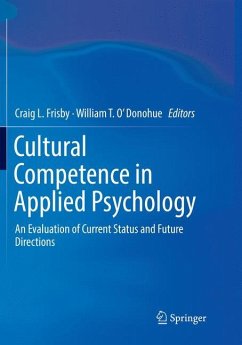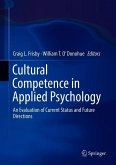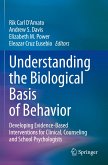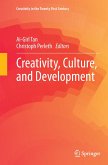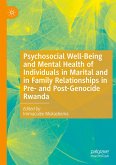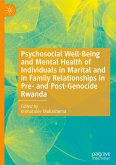The first volume of its kind, this provocative book evaluates the construct of cultural competence from multiple perspectives. At the intersection of diverse disciplines and domains, contributors argue for greater clarity in understanding the cultural competence construct, a deeper level of analysis as to its multifaceted components, and call for concrete practical objectives and science-based means of measurement. Serious, nuanced discussion addresses challenges, strengths, and limitations of current cultural competence practice in terms of sociocultural concepts (e.g., race, ethnicity) and practical concepts (e.g., sensitivity in the therapeutic relationship, treatment efficacy). In addition, contributors identify future directions for research, training, and practice with the potential to spur the further evolution of this clinically important construct.
This timely book:
Critiques the cultural competence construct and its evaluation as it is currently disseminated within applied psychology.
Compares and contrasts how cultural competence is defined within clinical, school, and counseling psychology.
Analyzes difficulties and challenges in understanding the cultural competence construct as evaluated through the lens of closely related fields outside of applied psychology.
Spotlights complexities in cultural competence issues pertaining to specific populations.
Sets out implications for education and training, offering a detailed outline for an ideal college course in cultural competence
With this level of reasoning and rigor, Cultural Competence in Applied Psychology is sure to stimulate long-overdue dialogue and debate among professionals across a wide variety of fields, such as clinical psychology, social work, child and social psychology, psychotherapy, school psychology, and counseling.
This timely book:
Critiques the cultural competence construct and its evaluation as it is currently disseminated within applied psychology.
Compares and contrasts how cultural competence is defined within clinical, school, and counseling psychology.
Analyzes difficulties and challenges in understanding the cultural competence construct as evaluated through the lens of closely related fields outside of applied psychology.
Spotlights complexities in cultural competence issues pertaining to specific populations.
Sets out implications for education and training, offering a detailed outline for an ideal college course in cultural competence
With this level of reasoning and rigor, Cultural Competence in Applied Psychology is sure to stimulate long-overdue dialogue and debate among professionals across a wide variety of fields, such as clinical psychology, social work, child and social psychology, psychotherapy, school psychology, and counseling.

